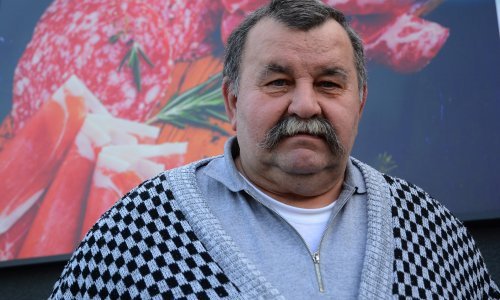Wreath-laying ceremonies were held outside of the birth house of Yugoslav leader Josip Broz Tito in Kumrovec, northwestern Croatia, on the occasion of the 30th anniversary of his death.
Several delegations gathered at the commemorations in Kumrovec, including delegations of the anti-fascist association SABA, the Social Democratic Party (SDP), local authorities, delegations from several Croatian towns and about 300 Tito sympathisers.
Members of Tito's family and others also visited the House of Flowers, Tito's mausoleum in Belgrade.
SABA President Vesna Culinovic-Konstatinovic said today that they had not come to Kumrovec to make out of Tito a special person but to pay respects to the man who during the Second World War led the anti-Fascist struggle and army towards the victory over Fascism,
"No matter what people may think of him, Tito has been the greatest man of our nations so far, which is confirmed by the fact that streets in 17 countries are named after him. There are his monuments at several continents, and his funeral drew 127 world statesmen. His greatest value is that he gave us freedom," Culinovic-Konstatinovic said.
A Croatian-born politician, statesman and lifelong president of Yugoslavia, Josip Broz Tito, died in Ljubljana 30 years ago. He was buried in the House of Flowers mausoleum in Belgrade.
Josip Broz was born in Kumrovec on May 7, 1892, but his birthday was celebrated throughout Yugoslavia on May 25 as Youth Day.
After learning the locksmith's trade in 1910, Broz joined the Social Democratic Party of Croatia and Slavonia, and fought in the First World War as a junior officer in the Austro-Hungarian army. He was wounded and taken prisoner in Russia in 1915. He escaped from imprisonment and took part in the October Revolution of 1917.
Broz returned to the Kingdom of the Serbs, Croats and Slovenes in early November 1920 when he joined the Yugoslav Communist Party. He became party leader after Milan Gorkic was arrested in the Soviet Union in 1938.
Broz was the representative of the Communist International, or Comintern, in Yugoslavia from 1935 to 1939, during which time a considerable number of Yugoslav Communist leaders were killed.
As the Yugoslav Communist Party leader, he led the Partisan resistance movement in the Second World War, from which he emerged as a victor and a legendary leader.
During and after the war, units under his command conducted a communist revolution, with tens of thousands of noncommunists disappearing in the flush of revolutionary justice.
In 1948 Broz resisted the pressure from Stalin and rejected the Resolution of the Communist Information Bureau Concerning the Communist Party of Yugoslavia, taking it as a pretext to settle accounts with sympathisers of the Information Bureau and Stalin, and with other political opponents. The infamous prison on Goli Otok island was the symbol of political terror from that period.
Broz was one of the founders of the Nonaligned Movement, which played an important role during the Cold War years of the 1960s.

































